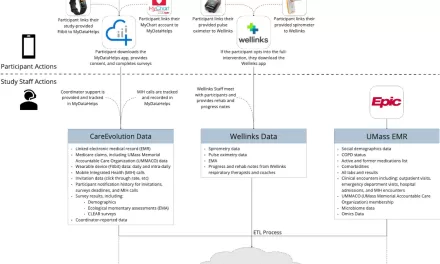A recent study published in Arthritis Care & Research highlights the heightened risk of heart failure subtypes in individuals with rheumatoid arthritis (RA). The research, led by Dr. Yumeko Kawano from Brigham and Women’s Hospital in Boston, found that patients with RA face a significantly higher likelihood of developing heart failure, especially the subtype heart failure with preserved ejection fraction (HFpEF).
The study analyzed 1,445 RA patients and 4,335 matched non-RA controls, focusing on the rates of heart failure subtypes in both groups. Researchers discovered that HFpEF, which occurs when the heart’s left ventricle becomes stiff and struggles to fill with blood, was the most common heart failure subtype for both groups. However, a greater proportion of RA patients (65%) had HFpEF compared to their non-RA counterparts (59%).
The study also revealed a striking difference in the risk of heart failure between the two groups. RA patients had a 79% higher risk of developing heart failure compared to individuals without RA. Additionally, the risk for HFpEF in RA patients was nearly double (hazard ratio 1.99) when adjusted for cardiovascular disease risk factors. However, no significant differences were found in the rate of heart failure with reduced ejection fraction (HFrEF), a condition where the heart struggles to pump blood due to weakened muscle.
Dr. Kawano and colleagues emphasize that the increased risk is predominantly associated with HFpEF, underscoring the role of chronic inflammation in its development. The findings suggest that inflammation may contribute to the progression of HFpEF in RA patients, pointing to potential avenues for treatment.
“The elevated risk was driven by HFpEF, supporting a role for inflammation in HFpEF and highlighting potential opportunities to address this excess risk in RA,” the researchers explained.
The study raises the possibility that anti-inflammatory treatments might help reduce the risk of HFpEF, not only in RA patients but also in individuals with other forms of chronic inflammation. However, the authors note that further research is required to determine whether anti-inflammatory therapies could effectively reduce this heart failure risk.
Several of the study’s authors disclosed financial ties to the pharmaceutical industry.
For more detailed findings, the study, titled Risk of Incident Heart Failure and Heart Failure Subtypes in Patients with Rheumatoid Arthritis, can be accessed in the December 9, 2024, edition of Arthritis Care & Research.
DOI: 10.1002/acr.25481












